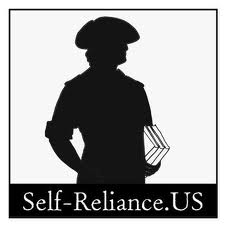Inequality of wealth
Is there great gap between wealth and poverty? How should we go about reducing it? Why is there such a gap?
The gap is getting bigger and bigger. No more loopholes for the richer (why can they transfer their money in tax haven whereas poorers don't have this choice?) and improve the economical situation of the poor (increase spending). The difference between the corporations and the individual total income is multiplied by a hundred and still one represents 10% of the governmental revenues and the other is 46%.
The gap is maintained by the politicians under the pressure of the elite. They want to keep their privileges, who wouldn't understand that?There is no single easy answer to this question. Max is correct that some of this is caused by "opportunities" extended to special interest groups and friends of politicians.
Part of the problem lies with declining education standards and availability. It is a fact that the more one knows, the more he or she is worth. A brain surgeon earns far more than a burger flipper and should earn more. It takes a huge amount of money to obtain the necessary training necessary to become a surgeon. Not everyone can get the necessary funds for this regardless of how intelligent or qualified they are. It is usually the children of very wealthy people who attend these schools.
There are children living in the projects who have the brains and ambition necessary to become almost anything they choose to be, but will never have the money to achieve this goal.
I feel it is partially the fault of our education system in allowing this to happen. They are willing to graduate students who can barely read and write, yet fail to help those children who could go on to accomplish great things for this country. When it comes to brain power, we were not all created equal and that is a fact.
Even children without giant brains could be taught a trade skill that would serve them well and earn them a decent living after they graduate. Until schools get back to really teaching instead of just teaching students how to pass the SAT tests it will never improve.
Our world ranking in many categories has steadily declined for years. It all starts with Education, and until that improves the gap will continue to widen.I agree with you poolman. Maybe their only motivation and strategy is to transfer those kids to fill the army ranks.
That's incredibly true! And I guess it should be one of our goals to reduce this gap. Education is one of the, if not the most important factor in the distribution of wealth
Education is probably the best method. Transference of wealth is probably the worst.
Transference of wealth would only be a temporary fix at best. A good education or trade school would solve the problem for many individuals. Preparing people for the future would be far better that keeping them on the welfare system for the remainder of their lives, and could be accomplished with approximately the same cost.
Totally agree with both of you gentlemen, Old Poolman and Howardbthiname. EDUCATION is the KEY to get out of poverty. Many poor people in THE UNITED STATES are often poor because of a particular mindset.
They feel that they are victims of life instead of being active participators. They also have a negative view towards education, particularly teriary education and beyond. Many poor people view such education as totally impractical. They believe that society should rescue them and lift them up out of poverty.
They refuse to believe that they are participators in their own socioeconomic malaise. They contend that THEY should do what they want regardless of the negative ramifications of their actions. In other words, they want to continue their pathological lifestyle and wonder why they are in the predictament they are in.
To sum it up in two words, the reasons why there are many poor people in THE UNITED STATES is that they are THOUGHTLESS and SELFISH. They do not believe in planning, delaying gratification, and to strategize intelligently regarding their future. They continue in the victimology and blame mode, wanting and expecting others to rescue them. To them, it is "THE MAN" who is keeping them in poverty, NEVER themselves.
They need to do some introspection and to become more participatory in their lives. If they want a helping hand, all they need to do is look at the END of their ARMS. NO ONE owes ANYONE anything. Time to put the good old solid principal of GOOD OLD SELF-RELIANCE into practice.
I agree with Old Poolman and sahbam16,
Education has reached a crisis state in our country. College is so expensive, that even if the graduates can get a job in their studied and chosen field, they may not make as much money in one or two years as their education costs. And there isn't anything for the people who don't want to or cannot afford college.
So it's a double problem. College costs have to be lower. Plus we need more people to learn the trades. Senior year is normally a waste in High School anyway, as in the U.S. you only need English and Gym by then. It would be good to use that year to teach car repair, how to balance a checkbook and set up a home budget, how to use tools and make simple things out of wood and metal. I also don't see why the kids are forced to take a language, it's never a "real" effort. I know many in Spanish Advanced Placement 5 (meaning they studied for 5 years) who can't even carry on a normal conversation in the language (I'm in NJ, big Spanish population). At least in other countries, they learn correct English. Why bother having language classes if it's just BS?
I know people that are still paying off college loans in their 40's, which is crazy. I guess if you are a lawyer or a CEO of a company you can pay them off, but we undervalue our citizens who choose service jobs, teachers, ministers, nurses, plumbers, and so many more. I don't think CEO's should be getting millions of dollars in bonuses, and Congress should be docked or fired for all the days they don't do anything. We would all be if we pulled stunts like they do. Let them see how real people live.That's absolutely true! If more equal opportunities were given not just in terms of materials, but also guidance it would be beneficial. And teaching is greatly undervalued despite the fact it should be valued as one of the most important professions
The wealthy own the most of the whole system. So naturally they're only going to allow wages to be as high as it takes to get workers to show up on the job--never higher and never reward incentive, unless it makes a rich person wealthier. And as the rich gain more, they allow less sharing of wealth, because their grip gets tighter.
Historian Arnold Toynbee said the majority of empires end this way: the rich get richer until the system collapses. In the U.S., with the lower classes divided and hating each other, the rich have no competition.I would have to disagree. Example - if an employer can pay double the wages to get an employee that can triple the output of current employees that employer will jump at the chance.
Now obviously no one is going to triple the output of a decent employee, but you understand that it is a balancing act between wages and productivity. Bottom paid employees are seldom worth even what they are paid (outside of during a recession) - employers are willing and happy to pay a bit more to get better productivity.I think that's true. But then sometimes the person who trains the new person ends up making less money than the person they trained. I know it's because the later hired person is getting paid the wage that seems appropriate at the time they are hired, but it's unfair to the person who taught them all they know.
Sure is, and a competent (and brave) person will find another place to work. After, that is, they have objectively assessed both their own work and that of the trainee.
In the long run the company will lose by using that pay strategy, too.It would take a very brave person to escape this situation by seeking a new job five years before retirement!
Yes it would. I left my job (without prospects for a new one) but also had 15, not 5, years to go. Most likely, with only 5 years to recoup the expected losses of unemployment and new job risk, I would not have done it.
That's life, though - sometimes the potential reward is worth the risk, sometimes it isn't. We each deal with it differently.Employers today seem to be some of the most hated persons in the world. It is assumed by many that all employers are "rich."
There are a huge number of factors that dictate how much any employer is able to pay his employees. It cost a great deal of money to keep a business operating. The employer himself has expenses to meet to support his own family and needs a paycheck to do that.
When it reaches the point where employees are demanding more in wages than the income they can produce, the business is done for and will soon fail.
All employees should be constantly seeking a means to better their position in the workplace. If a new company is paying higher wages and providing better benefits, they should strongly consider changing jobs.
Employees can also take courses or training at their own expense to make them worth more per hour to any employer. Unskilled labor is becoming cheaper by the day as unemployment increases and their are fewer jobs available.
The more one knows about the industry he works in the more he is worth. Employers really are willing to pay higher wages to those they consider key employees.
Employees also have the choice of starting their own business and competing with their previous employer.Really! So if I worked for General Motors . . .
I'll tell you what, my new store is gonna crush Walmart!
Then you may leave and start a new automobile manufacturing plant. All you need is a boatload of investment capital (from the evil rich people) and a very strong liking for risk taking.
Except if my face didn't fit I would be laughed out of the game for having the temerity to think I could play with the big boys.
John, I didn't think it necessary to explain that I was referring to small business, but guess I should have.
In the case of General Motors, the employees "pay" the Union to negotiate their wages for them. The worst employee in the plant makes exactly the same as the best employee in the plant. Some think this is only fair and the way it should be done.You may think that is the case, my experience does not support that idea.
John, I know that is the case. I have been a Union member, a management employee, and a business owner.
What experience have you had that makes this incorrect?Sorry, I was forgetting for the moment that you are in the US where unions are a bit different, I can't recall it applying to ant company in the UK.
Did you know that the average wage compared to inflation has fallen since the mid 80s (after Reagan union busting) the only wage that has stayed on par with inflation is the average union wage, so this "companies will reward good workers and not drop wages" argument is nonsense, Americans are one of the most productive workers by man hours in the first world with an increasing efficiency and output and yet those not in unions have had their wages dropped consistently.
Unions are just necessary to avoid that kind of exploitation.
Is there great gap between wealth and poverty?
Depends on how you look at it.
How should we go about reducing it?
Why do you want to reduce it, do you want to punish those who work hard? If you said yes then why should anyone work hard if only to have the reward for hard work taken away.
Why is there such a gap? Because some people are willing to work hard, take risks, others do not, they want people to provide for them, they do not want to work or take the risk.What about the mindset that if you are a production worker and you mess up you're out of the door and lucky to get any pay owed to you but if you are a CEO and you mess up you are let go with several million pounds as compensation for losing your sinecure?
What about the mindset of the production worker who works hard, gets bonuses and promotions yet his buddies like you give him grief for receiving the fruits of his hard work?
You actually believe production workers still get promotions and benefits?
You're funny. Actually, they just find some BS excuse to fire the guy and hire a new guy so they'll never have to worry about actually paying the employees more than the absolute minimum.Z
Yes they do. When I was VP for Metroplex Development, I promoted people all the time. I know 2 production workers who work the line for GM here in Texas, they are both millionaires and they did not inherit a penny nor do they own another company.
The problem is too many people take the attitude like you so they make no effort then wonder why they lost there job of course blaming "the man" for what happened to they.
Nobody will ever get any grief off me for working hard and getting on. I save it all for the privileged entitlement class.
Well I don't think you can argue that there isn't an enormous gap which is ever increasing considering the richest 1% of American own more than 36% of the countries wealth.I'm not insinuating that a CEO should be paid the same amount as a cleaner, however the amount this 1% receive doesn't reciprocate the importance and their ability to work hard. It's certainly completely unfounded to say that people on lower incomes don't work hard, and granted a minority have this attitude but the majority certainly don't. So teacher's, nurses and farm worker's don't work hard? That's an interesting claim.
S
I am not saying all people do not work hard. I was a gang kid on the streets of NY. I Gave it up, after High School I became a firefighter, went up to LT, I could have promoted higher but chose not to. I also had a construction company I started. I worked it hard and it grew fast. I soon became a 1%er.
My comment was not about who works hard and who does not, it is about those who work hard keeping what they earned. There are too many who do not want to work hard but want the rewards of those who work hard.
Easy question to answer, look for nations that don't have this huge gap, what do they do?
They let their poor get educations free of charge, they support start up businesses, they invest in poverty reduction, they give the poor healthcare and safe environments to grow up in.
Hence their poor often become wealthy.
In America that does not happen anywhere near as much, our economic mobility is statistically the worst in the first world, why? Because we are still caught up in the medieval fantasy that poor people are so (in the majority) through their own fault so why should we help them? A fantasy doled out by those who really don't want more competition at the top or to pay for aiding the country as a whole.Josak - Can you name of few of those countries where this gap doesn't exist? I totally agree with you on the free education, startup help, healthcare, etc. That makes far more sense than keeping people dependent on welfare.
No country without any gap but none where the gap is so big.
Sure, the usual, Norway, Iceland, Finland etc. etc. it's not that it does not exist but it is much much smaller and shrinking rather than growing alarmingly like ours.
Can we say that again? A little more informatively, perhaps?
They take money from some people to pay for education for others. They take money from some people to give to others that want to start their own personal business. They take money from some people to give to others so that they can have more money and not be poor. They take money from some people to buy health care for others.
Hence the poor, receiving lots of money being taken from others, can become wealthy from the efforts and wealth of someone else.
You make it sound as if it's not a wealth redistribution, but it most definitely is. The country takes money from one to give to another. Very fair and equitable, to require that one person must support another as well as themselves.But you are happy if it is the poor subsidising the rich!
John, most of us know if all production jobs paid piece work, some would make lots of money, others would nearly starve to death.
So in your world, the guy who digs 100 feet of ditch per day should share his pay with the guy who only digs 10 feet of ditch per day.
I'm sorry, but I just can't grasp that when they both have exactly the same opportunity to earn money and tools to work with.
I'm thinking you just hate rich and successful people like so many in this country. Never mind that many of the less fortunate put very little effort into trying to better themselves.I'm quite amused by the folk on here who think they know what I think and how consistently they get it wrong.
In my world the guy who digs a 100 feet of ditch in a day should be on a bonus that would greatly exceed his basic pay, the guy who digs a fairly normal 10 feet of ditch in that day would be on basic pay.
I only hate rich people who bleed the ditch diggers dry - I hesitate to call them successful beyond making a success of getting others to make them wealthy and don't hesitate to brand them the real entitlement scroungers.John - On this we disagree 100%. In piece work, these is no basic pay. Each and every employee gets paid for what they produce, no more and no less. There is no pay for just showing up and breathing air. The low producers are not entitled to any of the pay earned by the hard working high producers.
I fail to see how paying the employees for units of work completed in bleeding them dry?
Many of the harder more skilled jobs in this country follow the "Two can't rule."
That rule is as follows: "If you can't do the job, you can't work here." That rule is the rule of the other employees not management or owners. The other employees will not tolerate someone who will not do his fair share on the job site.
I would imagine this rule would be against everything you believe in.I agree with John on this one, that rule is far too ruthless, it punishes people who are getting older and people who might be carrying a small injury etc, just because I have a wrist strain which slows me down does not mean I should not be able to feed my family, there should be a bare minimum that covers rent and food sort of costs and bonuses on work from there on in.
I must say I am very very pleased we don't live in this conservative "utopia" wilderness gets rid of my sick pay so if I am sick I starve and my family goes hungry so I drag myself to work (no doubt getting others sick if it is contagious) at which point I can't work as fast because I am sick and thus starve anyway. Fantastic.Josak - The jobs I refer to are not for the old, injured, or infirm. An injured employee gets paid sick leave until he is able to return to his regular job.
On these jobs, it is the employee who decides when he can no longer do the work and asks for a lower paying job he is quite capable of doing. He is always granted this request.
The rule applies to those who work as part of a team doing hard and dangerous work. Those who have neither the skills or the physical strength are just not hired for these jobs.
I guess in your world every worker in the country would earn exactly the same pay regardless of the job they do. If this came true, who would do the hard, dirty, and dangerous jobs when they could flip burgers for the same pay?
Again you assume to know what I think and get it horribly wrong.
John and I are I believe both socialists, socialism advocates pay by piece work, that system has serious issues in a capitalist system however because it turns workers against each other which prevents cooperation and organization and has thus been shown to reduce the overall wage rather than distributing what was there to the better workers, piecemeal work does not function when the person running it has his main consideration as making as much money as possible, it's too exploitable, for it to work you either need a benevolent owner (they exist but one can hardly depend on them being a majority) or someone accountable to the people.
Piecemeal work would be great as long as employers guaranteed their wages overall would not fall and would keep up with inflation.For production type labor, piece work is the most fair system there can possibly be. The more skilled and ambitious the employee is, the more he makes.
The illegals who sneak into this country to harvest crops are often paid on a piece work basis rather than an hourly wage. Many think these illegals are hired because they are willing to work for low pay, but that is not always the case. They harvest crops and are paid by the bushel, box, or whatever. The more they produce the more money they get paid.
This is work most of our own citizens would not even consider doing. It is hot, hard, and dirty with long hours and no vacations or holidays off.
Many of them are quite skilled at what they do and they prefer the piece work basis of work because they make more money.
The growers hire them because they are ready and able to do the job that even those on unemployment will not do. It is this or let the crops rot in the fields.
I guess it is possible, but in this example I don't see how the employer could cheat the employees. Count the boxes and pay them what they are owed.In my younger days I went fruit picking one year! The only people who made any money at all were people with lots of children willing to work for nothing.
As I explained "what they are owed" is the problem, since piece meal work largely prevents unionization employers just drop the wages and continue to do so.
Josak - do you have any specific examples of this abuse or are you speaking in generalities? Any system can be abused if someone wants to do it, but that is a two way street. Employees can take advantage of employers just as employers can take advantage of employees.
In the case of the crop harvesters, they know the pay before they take the job. In most cases, it is very fair and they are able to send a great deal of money back to their families. The growers must get their crops picked or lose everything for that year. They are more than willing to pay a fair wage to get the work done and the crops to market.
It is unfair for a Union employee who does little or no work to draw the same wage as those who work hard and produce, yet it happens.Yeah I already quoted how the American worker has become more productive per man hour steadily since the 70s but since the mid 80s the average non union wage has fallen significantly and not kept up with inflation only unions have managed to keep their wage steady, it's very clear who is being exploited.
Sorry - never seen the poor subsidize the rich. They don't write checks to rich people as gifts and they don't pay income tax that can be turned over to rich people.
I have seen taxes go to the rich in the form of tax breaks as politicians attempt to buy votes or to change what the rich are doing via the tax code rather than simply paying said companies to take actions they wouldn't do otherwise. Setting up business in depressed city centers is a good example, as is paying farmers not to grow crops or to grow certain crops such as corn to make alcohol out of. There are tens of thousands of such breaks, usually in a misguided effort to control how a business is run.
Don't want to "subsidize" the rich? Quit paying them to act as the politicians think best and let them do business their own way.
In the business world, any skillset has a determined value in the overall process. In most cases, the market for that skillset will set a pay scale somewhere within that value....on the lower end for entry level and more toward the mid-range as experience is gained. In any case, if that employee stays in that job long enough and continues to get raises, they will eventually hit the proverbial pay ceiling for their skillset. The choices have to be made...do you like the job more than you like more money? If you want more money, are you capable of doing a more complex and higher paying job? Are you willing to relocate? We all make choices along those lines and ultimately business must make a profit if it is to continue to provide a job base in the community. I seriously doubt there are many jobs out there in which a person who has been in the job twice as long as the person with five years in it can say, I make twice his income...it is not realistic. The scale does move upward as inflation and demand for skillsets change but those movements are rather minute in contrast to the overall picture. Without education, and I am talking a real education which teaches the basics of reading, writing, math, and science, people will never be able to get doors open that are necessary to better themselves. At present, the heart of our education system seems to center on social consciousness and responsibility and to a much lesser degree on the basics. Heck, our kids are not even being taught the history of the country anymore. The expectation is entitlement and instantaneous gratification and anyone coming along promising that will have these minds of mush eating up their socialist crap within minutes of arrival....that is ignorance in a whole other form. ~WB
You will have to get rid of capitalism (I suspect that's the answer everyone wants to hear), however I live in the UK and can comfortably toy with the idea of socialist/capitalist hybrid. In the US Obama attempted to install something similar but was immediately under attack from the republican right. On this side of the fence no matter how radical our right is, they dare not openly side with the corporations.
As an entrepreneur myself with aspirations of growth, I prefer capitalism, however redistribution of wealth should be more of a concern than it is for western nations, with wealthy individuals successfully able to evade tax (true in the UK), pay low wages and generally take more advantage of the system, it is important the burden of taxation and other expenses are not left squarely on the shoulders of those in society that lack imagination or drive to succeed. Government policies must shift closer to subsidies for the not so fortunate. There are benefits for both sides, companies can continue to enjoy super normal profits and pay low wages, workers can still afford the basic necessities.
If we take a period of say, 1850 - 2000, I believe inequality has reduced and wealth has been spread more evenly, arguably more can be done, especially with regards to intercontinental disparity in wealth. In the Victorian era inequality was so great that millions of people could not even hope. In the industrial revolution after the American civil war, the age of the monopolist saw a handful of men control nearly 90% of all Americas wealth an industry, at one point JP Morgan bailed out the US economy and in effect was the American federal reserve. A lot has changed, we need to do more and the crisis in the western world, a combination of the greed of the wealthy and the desperation of the poor spawned nations riddled with debt. This should serve as a wake up call for Government, measured intervention is necessary in a globalizing, technology driven and fast moving world economy. Government policies are out dated, in the UK CPI (consumer price index) is still calculated using an 19th century model. It is time for government to wake up.
Related Discussions
- 12
Wealth, Poverty and the Mind
by RodneyBlaec Rainey 11 years ago
Apparently there have been some studies recently into the psychological effects of wealth and poverty on the human mind. Lawrence Davidson of OpEd News writes.."The notion that the poor can make "free and rational choices" and thus can be held responsible for their situation is...
- 24
The POVERTY Mentality in the United States
by Grace Marguerite Williams 5 years ago
For ANALYTICAL & INTELLIGENT thinkers only. What makes some people see socioeconomic poverty is a badge of strength? Why do these same people believe that socioeconomic poverty makes one somehow superior? Why do people glorify socioeconomic poverty as an acceptable lifestyle when...
- 32
About Poverty Elimination Globally And Distribution Of Wealth - Got Any Ideas?
by Moe H 10 years ago
About Poverty Elimination Globally And Distribution Of Wealth - Got Any Ideas?One bright idea is all it takes to alert the small percentage of people who own a large quantum of wealth. A suggestion that could trigger a call to action resulting in bringing immense benefits to millions around the...
- 37
So, why pandemic infections and mortalities exacerbated among Blacks?
by Credence2 5 years ago
The article came from an opinion piece in the New York Times, I would have liked to provide a simpler link. But, it was not possible. I think that this article below written by Mr. Janelle Bouie is both spot on and timeless, and explains my attitude in regard to this issue and countless others. The...
- 93
NO ONE Owes YOU Anything
by Grace Marguerite Williams 10 years ago
There is much discussion on the current socioeconomic malaise in this country. There are people who strongly argue that the reason for this current malaise is that the wealthier classes are greedy and are squeezing out the middle classes. There are others who staunchly contend that those in...
- 14
Do you have to be evil to be rich and successful?
by IDONO 10 years ago
Do you have to be evil to be rich and successful?It seems like anyone that is successful is automatically scrutinized by media and the public in general as a person with a dark side. I realize it's next to impossible to be successful without stepping on someone along the way, but does that make you...


















